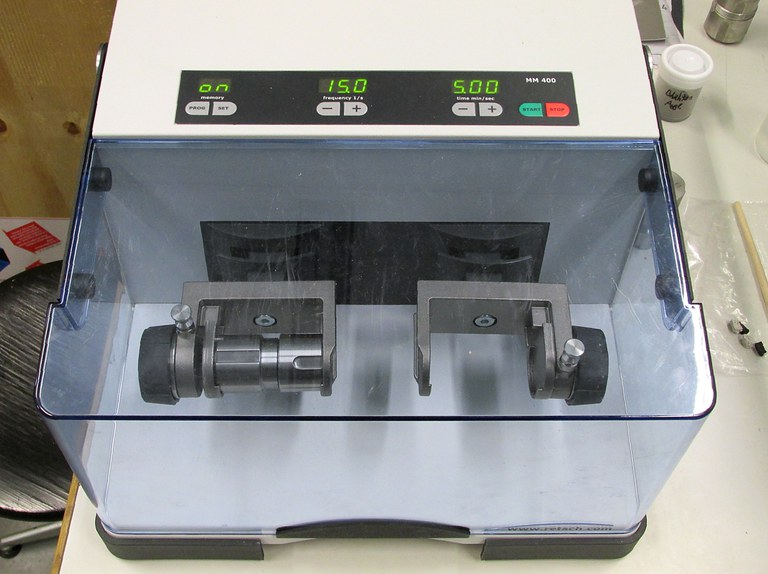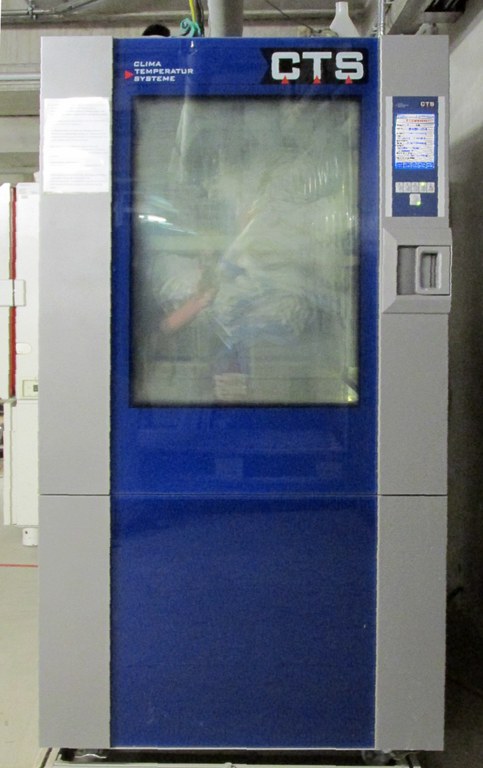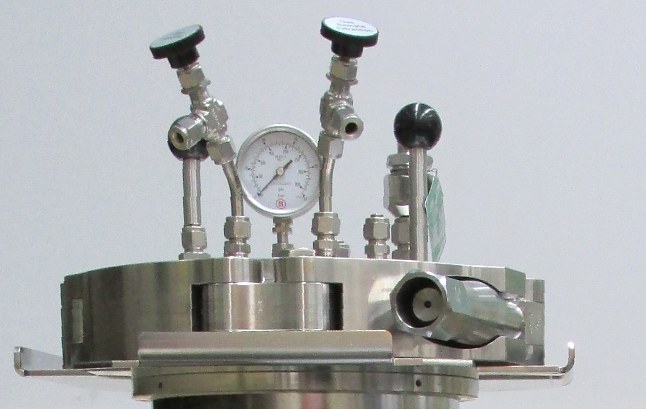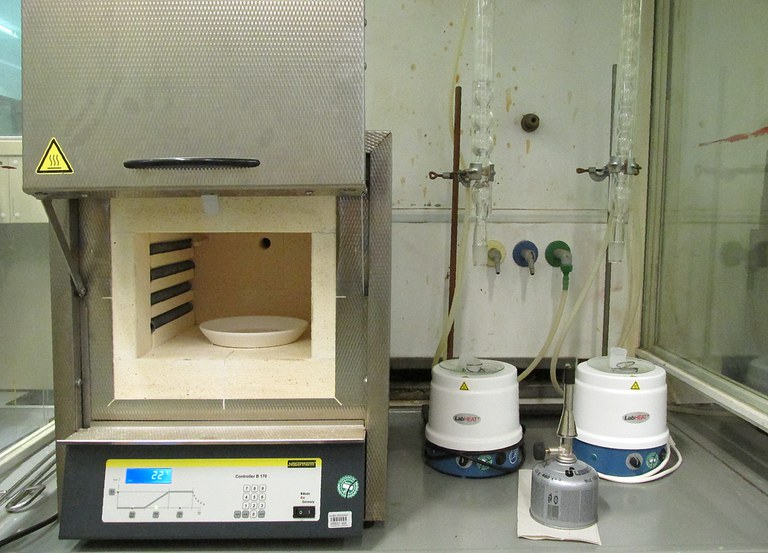Crushing and Grinding
Depending on the type of tests it is sometime necessary to reduce the size of the sample. A jaw crusher, various grinding mills and mortar grinder are available in the lab.

Figure: Mixer mill MM 400 for dry, wet and cryogenic grinding of small amounts of sample down to a final particle size of 5 µm
Conditioning
Test must be conducted under controlled and reproducible conditions according to the relevant testing standard. A climate room and various climate chambers are available. Additionally several drying chambers are at hand and are often used for determining the dry densities of lightweight concrete samples.

Figure: Climate chamber
Autoclave
An autoclave is a gas-tight lockable pressure container which is used for thermal treatment of materials under high pressure. In the case of construction materials autoclaves are used in the production process of autoclaved aerated concrete and sand-lime bricks. Controlling the autoclave process means controlling the curing these construction materials and in that course their strength properties and microstructure. The institute’s autoclave contains up to 11 liters. Its operation temperature ranges from 0 °C to 300 °C at a 24 bar maximum pressure.

Figure: Berghoff Highpreactor stainless steel high pressure laboratory reactor
Annealing and Calcining
The annealing furnaces reach 1400 °C maximum operation temperature. They are suitable for controlled calcination of smaller charges of clay and clay mixes. They are also employed for synthesizing cement clinker minerals.

Figure: Open annealing furnace